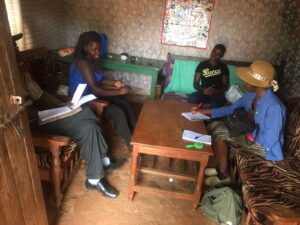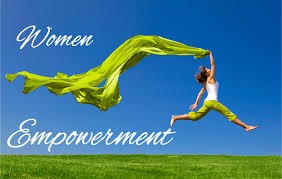By Phyllis Livaha
Here I am, in Kisii, Kenya, working on an issue that everyone agrees is important, but no one seems able to define: “Women Empowerment”. What is Women Empowerment?
English-language dictionaries equate “empowerment” with liberation, emancipation, inspiration, encouragement, confidence-building and equality. Bilingual dictionaries, however, often don’t even have an entry – because there’s no corresponding word in most languages.
Look more specifically for “women empowerment”, and you’ll find the phrase is generally used in the context of issues like economic empowerment, political participation, and girls’ education. You’ll find various references to increasing and improving the “social, economic, political and legal strength” of women, or ensuring equal rights, or helping them build the confidence to claim their rights – which could themselves range from determining financial and economic choices, getting equal opportunity for education, and having complete control of their lives, both inside and outside their homes.
UN Women states that “empowering women to participate fully in economic life across all sectors is essential to build stronger economies, achieve internationally agreed goals for development and sustainability, and improve the quality of life for women, men, families and communities.” One of the principles that offer guidance to empower women in the community is to promote equality through community initiatives and advocacy.
Kenya, one of the most populous countries in Africa, has policies and programmes geared towards the improvement of women socio-economic standing and overall development. I am interested in seeing whether and how these programmes have worked for the women (and men) in Kisii.
Hello Kisii, Again
I am very happy to be in Kisii again. I’ve come back to the place I stayed last year – the Eye hospital. I even got the same rooms for me and Loes, the student who will join me. I met with some of the people who I had spoken with about female circumcision last year and who had stated then that their interest was to enhance themselves economically. It was nice to see them, and talk to them again. I told them why I had come back again – to understand how they wanted to enhance themselves, what they had done so far, and what barriers/challenges they were facing.
Local Researchers
What I like about doing participatory action research (where as the researcher, you don’t just collect data from the community, but act as a facilitator and allow the community to fulfil an active role in the co-creation and implementation of local solutions within their range of possibilities) is that you have a team that you work with, and members of the local community make up part of the team.
I spent my first two weeks getting to know my two local researchers: Mary Gesare Getugi and Godfrey Ragogi. Both of them seem enthusiastic about working together.
Mary, a single mother of two, is an avid business woman. After finishing high school, she started buying clothes in Kampala, Uganda, and selling them locally – a business she built up after navigating the markets of Kampala on her own. She got married, and after giving birth to her second child, things got a bit tough, and she decided leave her husband and go back to her parents. She has a bit of savings, but she is planning on going back to doing business. She is very passionate about empowering women and youth.
Godfrey has worked with AMREF international. He worked in Kericho, where they had to assess the proposals of different groups to see if they were eligible for funding to start different projects.
The Start
 We started with a workshop where we introduced each other and talked about how we would go about doing the data collection. We want to find out whether and how women are empowered economically (and otherwise) through the self-help groups. To answer this question, we will look at the execution of the groups, and what barriers/challenges they face. We decided to look at the different self-help groups in Nyaribari Chache Constituency, and concentrate on Kisii Central Ward. Our aim is to see how women (and men) have enhanced themselves through the self-help groups, what challenges they are facing in these groups, and what their dream for the future is.
We started with a workshop where we introduced each other and talked about how we would go about doing the data collection. We want to find out whether and how women are empowered economically (and otherwise) through the self-help groups. To answer this question, we will look at the execution of the groups, and what barriers/challenges they face. We decided to look at the different self-help groups in Nyaribari Chache Constituency, and concentrate on Kisii Central Ward. Our aim is to see how women (and men) have enhanced themselves through the self-help groups, what challenges they are facing in these groups, and what their dream for the future is.
We decided to start with the leaders of these groups and then the members. Other stakeholders that we thought we would approach were people who were not in self-help groups, people who worked for the county government, and people who worked for the national government. We also decided to approach different organizations that work with the groups. We then assigned ourselves the task of looking for the different groups. We hope to investigate how the women (and men) in the community through these groups realize the sustainable development goal 5 that addresses the achievement of gender equality and women empowerment of all women and girls.

